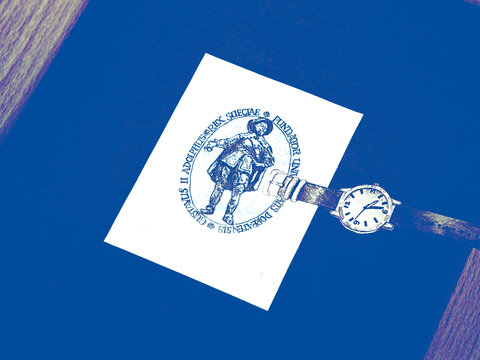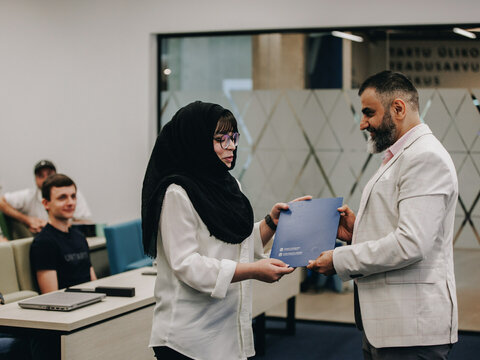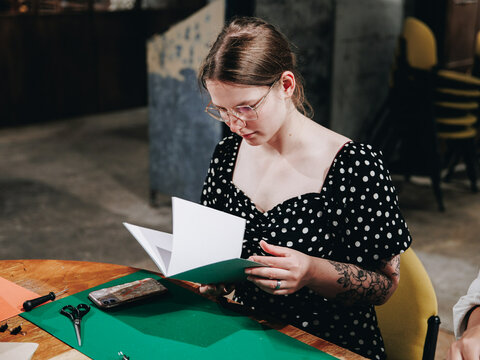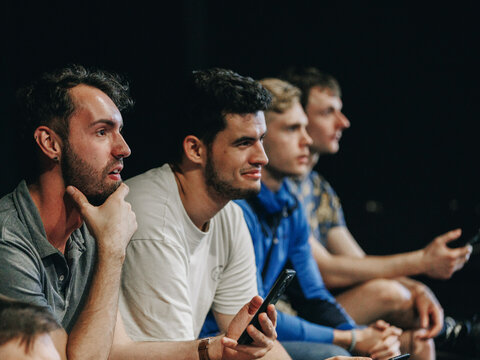The Politics of Popular Culture
-
Credits
3 ECTS (78 hours)
Form of study
Classwork
Location
Tartu
Fee
550 EUR
Teachers
Michael Cole
Study group
Political sciences and civics
Program language
English
Purpose:
Students will deepen their understanding of the ways politics and everyday culture interact, and be encouraged to explore specific case studies including the use of football as a political tool by populist leaders, music as a means of integration for Estonia's Russian speakers and expressions of national identity through everyday food products.Students will develop their knowledge of these case studies further through a group class project and optional written assignment.
Target group:
Advanced BA, MA, PhD students
Outcome:
Upon completion of the course, students will:- have a deeper understanding of some of the key issues in the field of politics and popular culture;
- be able to conduct a basic analysis of popular cultural items and their connection to politics using Critical Discourse Analysis (CDA) and Multimodal Discourse Analysis (MMDA) tools;
- can analyse connections between one popular cultural item in Estonia and national or international political developments;
- be able to produce an op-ed popular science style text about the politics of popular culture.
Starting conditions:
High level of academic English, both spoken and written (B2 or above) essential
Prior awareness of connections between politics and popular culture, and/or methods to be studied during the course, beneficial.
Teachers:
Michael Cole - Michael Cole is a PhD Candidate at the Johan Skytte Institute of Political Studies and Early Stage Researcher in the Marie Curie Horizon 2020 project ’FATIGUE’. Michael is also a journalist at the Estonian national broadcaster ERR (Eesti Rahvusringhääling).
Michael’s PhD research focuses on representations of Russia in Ukrainian and Georgian far right discourses.
His research interests also include the relationships between football, music, street art and politics.Content:
| Topic | Credit | Lectors |
|---|---|---|
| 1. What is the politics of popular culture? | 18 | Michael Cole |
| 2. The politics of music | 15 | Michael Cole |
| 3. The politics of sport | 15 | Michael Cole |
| 4. The politics of street art | 15 | Michael Cole |
| 5. The politics of food | 15 | Michael Cole |
Price info:
Free of charge for students with a scholarship (DAAD).
Location info:
Tartu linn
Learning environment:
Studies and teaching takes place in appropriate classrooms, which have the required teaching equipment and meet the health and safety requirements.
Schedule and further information:
This course provides an overview of the methodological tools required to assess a diverse range of research questions related to politics and popular culture, including Critical Discourse Analysis (CDA) and Multi-modal Discourse Analysis (MMDA). The course also takes full advantage of the interactive and immersive learning environment in Tartu, to introduce students to the most important issues affecting the relationship between politics and popular culture in Estonia and beyond.
Requirements to complete:
1) Active participation in classroom sessions2) Completion of group assignment and presentation
3) Completion of independent written assignment
In order to pass successfully, students need to complete all compulsory assignments and meet at least the minimum passing threshold criteria (51 points from the overall grade).
Outcome method:
non-differentiated (pass, fail, not present)
Grading method:
1) Class participation – 40%2) Group Exercise - 30%
3) Written assignment - 30%
Grading criteria:
Active participation: Students will attend and actively participate in no less than 90% of the course class time and complete the group and individual assignments.
Group presentation: Students will give a presentation on a case study of their choice, which demonstrates and explores an aspect of the relationship between politics and culture.
Students’ group assignments will be assessed, firstly by peers , secondly by the instructor. Points will be allocated according to originality of topic (30%), clarity of presentation (30%) and analysis of material (40%).
Written assignment: Students will produce a short op-ed style assignment (1,000 words) on the same or a related topic for submission to a suitable outlet for publication. Writings will be assessed according to originality of topic (30%), writing style and quality (30%) and quality of analysis (40%).
Document to be issued:
Certificate of completion
Tax refund:
No
Additional information:
Michael Cole, michael.cole@ut.ee, +372 -
Program code:
SVJS.TK.068
General contact:
Similar lifelong learning courses
Time of occurrence:
02.09.2024
-
31.01.2025
Credits: 18 ECTS (468 hours)
Form of study: Entirely web-based
Language: English
Time of occurrence:
02.09.2024
-
30.06.2025
Credits: 24 ECTS (624 hours)
Form of study: Partially web-based
Language: Estonian
Time of occurrence:
02.09.2024
-
31.01.2025
Credits: 12 ECTS (312 hours)
Form of study: Classwork
Language: Estonian
Time of occurrence:
02.09.2024
-
30.06.2025
Credits: 24 ECTS (624 hours)
Form of study: Partially web-based
Language: Estonian
Time of occurrence:
02.09.2024
-
31.01.2025
Credits: 12 ECTS (312 hours)
Form of study: Classwork
Language: Estonian





